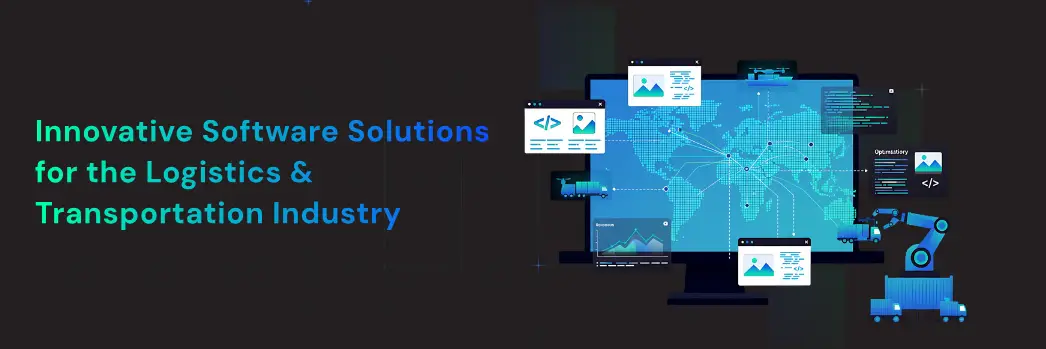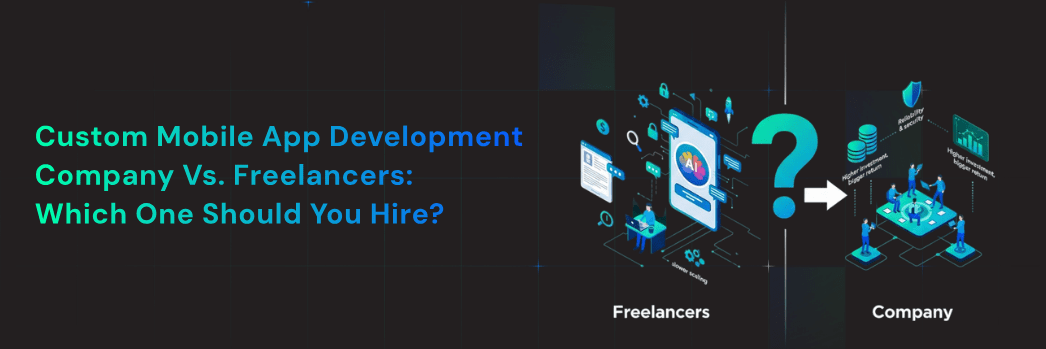The logistics and transportation industry forms the backbone of global trade, ensuring the movement of goods and services across cities, countries, and continents. As businesses continue to expand their reach, the demand for efficient, reliable, and transparent logistics operations has never been higher. Traditional methods often fail to keep pace with rising customer expectations, complex supply chains, and rapid delivery demands. This is where innovative software solutions step in, transforming the way logistics companies operate.
From fleet management to supplier coordination, and from shipment tracking to customer notifications, custom software is revolutionizing every aspect of the industry.
The logistics sector is no stranger to challenges. High fuel costs, fluctuating demand, delivery delays, manual paperwork, lack of real-time visibility, and poor coordination often disrupt operations. These inefficiencies not only increase costs but also hurt customer satisfaction.
Digital transformation is no longer optional — it’s a necessity. By adopting innovative logistics software, companies can:
- Improve efficiency through automation.
- Gain real-time visibility into fleet and supply chain activities.
- Optimize routes to save time and fuel costs.
- Enhance customer experience with transparency and updates.
- Reduce risks with predictive analytics and alerts.
Software-driven solutions empower logistics companies to become faster, smarter, and more customer-centric.
1. Fleet Management Software
Fleet management is at the heart of logistics. With the right software, businesses can monitor vehicle performance, track routes, and manage driver schedules in real time. Features include:
- GPS-enabled vehicle tracking
- Fuel consumption monitoring
- Predictive maintenance alerts
- Route optimization
- Driver behavior analysis
Such software helps companies cut costs, ensure compliance, and extend vehicle life cycles.
2. Interactive Logistics Apps
Mobile apps designed for logistics simplify day-to-day operations by providing stakeholders with custom views, dashboards, and notifications. Drivers, suppliers, managers, and customers can access real-time data through interactive dashboards.
For example:
- Drivers get optimized route maps and service reminders.
- Suppliers can manage shipments and inventory updates.
- Managers track orders, delivery times, and fleet usage.
- Customers receive notifications about their delivery status.
This improves coordination across the supply chain and ensures timely decision-making.
3. Warehouse Management Systems (WMS)
Warehousing is another critical link in logistics. Manual tracking of inventory often leads to errors and delays. A smart WMS enables:
- Real-time inventory tracking
- Barcode/RFID scanning for accuracy
- Automated restocking alerts
- Seamless integration with ERP systems
- Space utilization analytics
These systems reduce errors, improve storage efficiency, and ensure accurate order fulfillment.
4. Supplier & Service Management Software
Managing suppliers is often complex, involving contracts, invoices, and service levels. Innovative logistics solutions simplify supplier relationships by offering:
- Centralized supplier databases
- Performance tracking and analytics
- Automated contract renewals and alerts
- Streamlined communication channels
With this, businesses can ensure strong partnerships and avoid costly disruptions.
5. Shipment Tracking & Delivery Management
Today’s customers demand transparency. Shipment tracking software allows end-to-end visibility of parcels and cargo. With features like live GPS tracking, proof of delivery, and automatic notifications, customers are always informed. Businesses also benefit from fewer complaints and stronger trust.
6. Predictive Analytics & AI in Logistics
Artificial Intelligence (AI) and predictive analytics are game changers. By analyzing large volumes of data, logistics companies can:
- Predict demand and avoid stockouts
- Forecast delivery delays due to weather or traffic
- Optimize supply chain routes
- Reduce risks with predictive maintenance
This helps companies stay proactive instead of reactive.
7. Cloud-Based Logistics Solutions
Cloud technology offers flexibility, scalability, and cost efficiency. Cloud-based logistics systems allow access from anywhere, support real-time collaboration, and enable integration with multiple third-party tools such as CRMs, ERPs, and payment gateways.
Businesses that adopt modern logistics software enjoy several advantages, including:
- Cost Reduction: Optimized routes, fuel management, and reduced paperwork lower operational costs.
- Time Efficiency: Automation speeds up processes like invoicing, reporting, and tracking.
- Enhanced Security: Encrypted systems protect sensitive supply chain data.
- Improved Decision-Making: Dashboards and real-time reports give managers clear insights.
- Scalability: Software grows with the business, supporting expansion and higher workloads.
Innovative software solutions are not limited to logistics companies. Several industries rely heavily on efficient transportation and supply chain management, including:
- Retail & E-Commerce – Fast deliveries and order tracking.
- Manufacturing – Supplier coordination and raw material tracking.
- Healthcare & Pharmaceuticals – Cold-chain monitoring and sensitive product handling.
- Food & Beverage – Timely deliveries and inventory control.
- Construction – Equipment tracking and bulk supply management.
While off-the-shelf software exists, it often fails to address industry-specific challenges. Partnering with an experienced software development company ensures tailored solutions that align with your business model.
When selecting a partner, consider:
- Experience in logistics software development
- Expertise in technologies like AI, IoT, and cloud
- Portfolio of custom projects delivered
- Ability to provide ongoing support and upgrades
A reliable development partner helps businesses innovate, scale, and stay competitive in a rapidly evolving market.

The logistics and transportation industry is at the center of global commerce, and its success depends on efficiency, accuracy, and customer satisfaction. By embracing innovative software solutions, businesses can streamline operations, cut costs, and provide superior service.
From fleet management systems to AI-driven predictive analytics, the future of logistics lies in digital transformation. Companies that invest in custom software today will not only meet current challenges but also position themselves for long-term growth and competitiveness.
Search
Recent Post
- Custom Mobile App Development Company vs. Freelancers: Which One Should You Hire?
- iOS & Android App Development Best Practices for Modern Businesses
- Future of Mobile Apps: Role of a Mobile App Development Company
- How Page Speed Affects Ecommerce Sales in USA
- Angular vs React: Which Framework Performs Better?
- Ecommerce Website Features That Actually Increase Sales
Categories
- Blog (57)
- It Solution (1)
- Mobile App (14)
- option1 (1)
- option2 (1)
- UX Design (1)
- WordPress (2)



